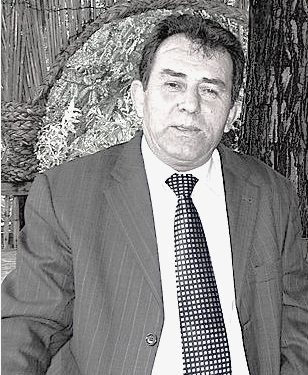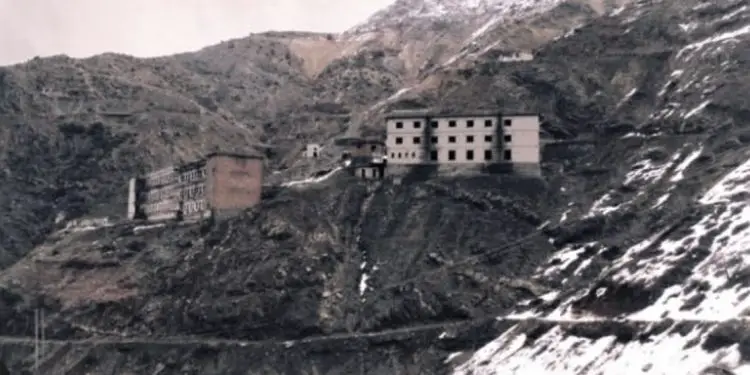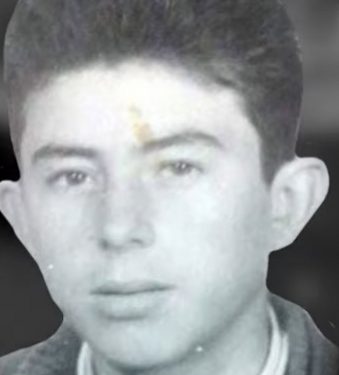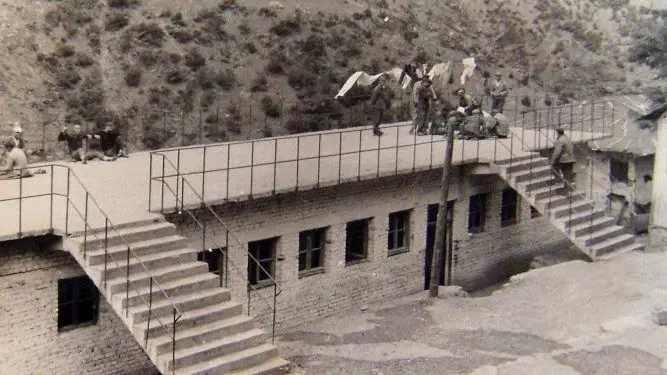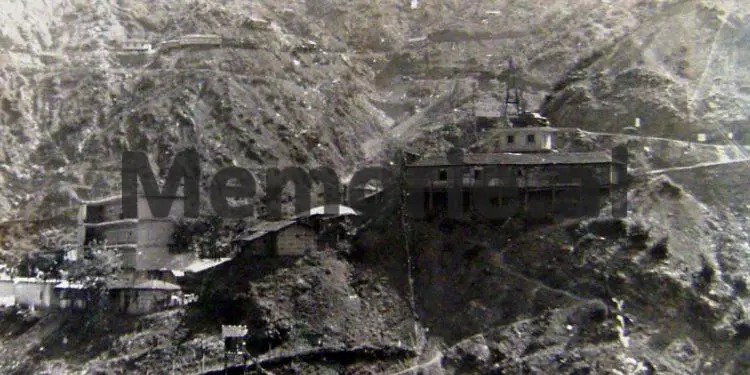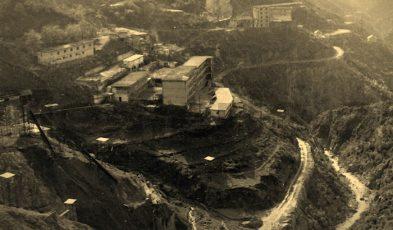By Shkëlqim Abazi
Part Forty-Six
Memorie.al / I were born on December 23, 1951, in the black month, of the time of mourning, under the blackest communist regime. On September 23, 1968, the sadistic chief investigator, Llambi Gegeni, the ignorant investigator Shyqyri Çoku, and the cruel prosecutor, Thoma Tutulani, massacred me in the Branch of Internal Affairs in Shkodër, split my head open, blinded one of my eyes, deafened one of my ears, and after breaking several of my ribs, half of my molars, and the thumb of my left hand, they took me to court on October 23, 1968, where the wretched Faik Minarolli gave me a ten-year political prison sentence. After my sentence was halved because I was still a minor, sixteen years old, they took me to the Reps political camp on November 23, 1968, and from there, on September 23, 1970, to the Spaçi camp, where on May 23, 1973, during the revolt of political prisoners, four martyrs were sentenced to death and executed by firing squad: Pal Zefi, Skënder Daja, Hajri Pashaj, and Dervish Bejko.
On June 23, 2013, the Democratic Party lost the elections, a perfectly normal process in the democracy we claim to have. But on October 23, 2013, the General Director of the “Rilindase” (Renaissance) Government sent Order No. 2203, dated 23.10.2013, for the “Dismissal of a police employee.” Thus, Divine Providence was intertwined with the neo-communist Rilindase Providence, and precisely on the 23rd, I was replaced, no less and no more, by the former Sigurimi (Secret Police) operative of Burrel Prison. Could anything be more telling than that?! The former political prisoner is replaced by the former persecutor!
The Author
SHKËLQIM ABAZI
R E P S I
(Forced Labor Camp)
The First Meeting
REPS (Forced Labor Camp) – Memoir
The First Meeting (The Boat Sunk in the Mooring)
Communist idealists ended up in the camps they themselves designed. They wallowed in the mud of Beden and Thumanë with those they considered enemies of the ideal. Here, Ilia’s eyes were opened; the alleged enemies were far better and nobler than he had imagined. Human solidarity crossed every boundary; the former enemy would take the morsel from his mouth to save the life of a former communist who, until yesterday, had tried to eliminate him; he would strip off his only shirt to save from fever the one he had called a traitor.
In his subconscious and his brain, an evolution unknown until then occurred, which pushed him to revise all the nonsense instilled by communist ideology. Like the snake that sheds its skin, he changed not his skin, but his essence, conscience, and worldview. From a doctrinaire communist, he was transformed into a missionary nationalist. Now, he openly admitted his mistakes and openly propagated democratic ideas for ethnic Albania. He transformed into a disciple of Midhat Frashëri, whom he had hated until then. This untamed lion could not endure the shackles!
For freedom, he challenged death, deciding to escape. His goal was not to cross the border to save his own skin, but to continue the fight, now for the overthrow of the communist regime and the restoration of democracy. He put the idea into action one stormy winter day in 1959. Along with a companion in suffering, they plunged into the drainage canals and managed to get away. While his friend headed towards the border, Ilia did not attempt this, but hid nearby, aiming to attack the guards, arm himself, then free the convicts, and all together start the fight for the country’s freedom.
He hoped for the support of the residents of that region, ravaged by the communist regime, as well as for intervention from outside, via the sea and the air. But he had miscalculated; Ilia’s saving plan was premature and uncoordinated. Communist terror had deeply dug its claws into everyone’s conscience, spreading fear and panic everywhere, turning the people into an amorphous crowd that crawled like reptiles, not daring to raise its head, ready to sacrifice even their closest relatives just to escape the deadly tentacles of class struggle.
Thus, one fine day, Ilia, exhausted from fatigue and hunger, was spotted by some villagers who denounced him to the State Security organs. The entire territory was surrounded; the pursuit forces, doubled in number, left no path free. They shot at him with all kinds of weapons, and when he had taken several bullets in his body, they assumed he was dead. According to the confession of one of the pursuers, who himself would end up in prison in the seventies, they had thrown the bloody Ilia, wrapped in a tarpaulin, like a corpse onto the truck bed, to then display the body before the villagers of the region for psychological terror, and then take him to the prison camp to show the convicts that anyone who dared to act that way would suffer the same fate.
“If we had known he was alive, each one of us would have put a bullet in him! We didn’t need a man, my friend, but a corpse! You must have been long-lived!” the narrator concluded. Indeed, he had been long-lived! After the truck had rattled along rough roads, through potholes and swamps, it reached a gravel bed by the river, where Ilia showed signs of life. The two escorts, whom no one had instructed on how to proceed, seeing the victim stirring, ordered the driver to head to the hospital. Unintentionally, they had prolonged his life. At the hospital, the doctors did their job, and fortunately, he survived but with irreparable damage. For the rest of his life, he would drag one leg. Since the terrorizing display failed, as compensation, the court gave him the maximum sentence, and after a few months, now a harmless cripple, they threw him back into the camps. But there was one thing his former comrades had not foreseen: they certainly mutilated Ilia physically, he barely crawled on his right side, but he had a sound mind and an unconquered spirit. The feeling of revolt had not subsided at all; on the contrary, now after the crippling, he had become more combative, and what he could not achieve himself, he injected into the younger ones with the same passion.
This was the Ilia I found in Reps, after twenty years in prison, with fifteen more still remaining. I was favored; I could do my French lesson at the time I wanted. Since Ilia was six hundred (disabled/unfit for work), he had plenty of free time to be available to me whenever I had the opportunity. The first few days were difficult; adjusting to the rules was despairing me and minimizing my enthusiasm for school. It had been years since I had studied systematically; I certainly read everything I could get my hands on, but reading is different from studying. A boring book can have a few pages skipped without reading them; when you find attractive episodes, you dive into them quickly and might reread them again and again; depending on the case, you can throw it aside and pick up another, and when that one also doesn’t present interest, you quit altogether and take up dominoes, backgammon, or chess, play a round or two, calm down or get furious, and in the end, you feel free to do whatever you fancy.
It’s different with studying; you may not like it, it can be monotonous, even tasteless, boring to the point of a headache, it can even cause disgust, and yet you are forced to learn it; you can’t just toss it aside. There have been times when I felt bad, a particular book or lecture seemed to trigger my allergy or induce vomiting, and yet the sense of duty triumphed; I resisted the temptation to discard it. However, with Ilia, I never got bored to the point of disgust. No matter how tedious the lesson seemed, he possessed an entirely personal style; he charmed the student with the method of the fisherman who knows the location before casting the hooks. After sensing the student’s desires, he would include in the lesson menu what they enjoyed most.
In my case, he would start with the recitation of a beautiful poem by Lamartine, Hugo, Musset, or other poets, sparking curiosity, and then he would delve into the topic. With this original method, we made good progress. In the end, both sides felt satisfied: he, because he saw that his effort was not going to waste, and I, because I managed to read and understand a short text.
The “Encyclopedia” of the Prisons
8 – One of the most interesting individuals I happened to know in prison was Namik Zeneli.
He had no direct connection with the learning process; he didn’t teach me any specific subject, but in a way, he explained them all to me. He belonged to the autodidact category; he hadn’t even finished high school, everything he had achieved was his personal merit. He had been convicted at eighteen under a slightly different article, for terrorism against high state figures. It is no coincidence that I left him for the end; below I will also talk about the court process that was still ongoing at the time I met him. Namik had spent years in Burrel prison with distinguished intellectuals. There, driven by the need to pass the days, he took up reading. That was the reason, to begin with…! Chance brought him together with the brilliant poet of subtle feelings, the Vlora native Kudret Kokoshi, who, as a fellow regional, brought him into his social circle.
The shepherd of the goats, with an iron will and incomparable intellect would quickly absorb everything into his virgin brain. Soon, this “profane ignoramus” would attract the attention and curiosity of the numerous intellectuals serving their sentences there. His unusual zeal and unprecedented intelligence prompted the scholars there to dedicate themselves wholeheartedly to this talent. They observed with astonishment that the mutilated genius was a supernatural student who advanced remarkably, which made them spare no effort. Each in their field gave him the best possible.
The boy from Vajza e Vlorës rapidly broadened his horizon, learned the main languages from the polyglots there, mastered sciences and art, and managed to accumulate so much information that even the most knowledgeable began to seek his opinion, at first out of curiosity, then because they felt the need. He completed his knowledge base in all fields; he could express himself freely in academic discussions on specific issues: linguistic, literary, historical, philosophical, aesthetic, etc. The shepherd with the crook, little by little, transformed into an encyclopedist.
When old convicts were released, it had become customary to donate their personal library to the younger ones. Now the person benefiting from this indulgence was Namik, due to the special fact that in him, they found the passionate successor who could push and convey the knowledge further. Thus, he also became the prison bibliographer. You could find every book with Namik! Except that he had acquired a “quirk” from his teachers: he wouldn’t fold the page corners of books or scribble on the margins. Anyone who violated this unwritten pact lost the right to ask for a book from him again.
I learned this “quirk” right away, so I never violated it; consequently, I could always ask for and take any book I wanted. In the investigation, they had maimed him; one of his hands was irreparably disabled. Because of this, he was six hundred (disabled), consequently unemployed non-stop. Whenever I encountered difficulties in specific subjects, he was available. When I asked for his opinion on one topic or another, he was tireless. I never saw him rush or assume the attributes of the arrogant competent, or say: “it’s this way or that way, as I say,” no. But modestly, he would state: “I think it should be this way or that way, however, we should consult the relevant book, open it to x chapter, y page, as it might be otherwise!”
Of course, when we opened the book to that page, chapter, or paragraph, it turned out exactly as he had said. Still modest, he would add: “I wasn’t completely sure; after all, we are uneducated people!” Although his memory functioned like an infallible computer, he always remained simple. Boasting never became a twin of his character. From his mouth, I heard endless recitations: the verses of the Iliad and the Odyssey, Dante’s Inferno-Paradise, Shakespeare’s tragedies and comedies, Goethe’s Faust, Hugo, Schiller, Pushkin, D’Annunzio, Lorca, etc. But the strangest thing was that you heard all these authors in Albanian, but also in their native languages.
He knew the Albanian cursed poets thoroughly: Fishta, Koliqi, Arshi Pipa, Mitrush Kuteli, Ali Asllani, etc., their complete works. But above all others, he knew to perfection the soulful poems of his favorite prophet, Kudret Kokoshi. Namik recited like a true actor, raising and lowering his intonation, making you think you were listening to Aleksandër Moisiu himself, for whom he nourished a special veneration, even though he had never heard his voice, but only the stories of those who had studied in Germany and Austria. From my friendship with him, I gained tremendously; I became acquainted with the genre of literature that I had either never heard mentioned or, even if I had, was spoken of as reactionary and cursed, without ever explaining why it was classified as such!
Namik was also a phenomenon in the exact sciences: mathematics, physics, chemistry, biology. When engineer Hamdi Haska was swamped with projects and lacked the time to help me, the omnipresent Namik would get involved with solving exercises and deciphering theorems. He did this with scruple, just like Hamdiu, but to show as much modesty as possible, he would say: “When we meet the engineer, we will ask him to repair any possible mistakes, because we are amateurs, my little brother!” But even when Hamdiu corrected them, the result remained unchanged. His intellectual interests covered almost every field, but I never heard the boastful phrase “I know everything.” In truth, he represented an astonishing phenomenon, rarely encountered in life. I am not the only one to reach this conclusion, but many others before me; I simply confirm the specialized opinion of these teachers.
Namik spoke about literature like a literary critic, about history like a philologist, about art like an aesthete, about exact sciences like an engineer, mathematician, or economist, about ancient and new languages like a polyglot, about politics like an analyst, about social phenomena like a philosopher, about culture and sports like an artist or a great champion; therefore, that brain contained a living encyclopedia. Even though he played the modest role and did not expose himself, everyone recognized these values and everyone utilized him as needed, in the field where they had interest. I also utilized him for everything, but at the price of a friend.
When the professors explained specific subjects, Namik did not intervene, but followed the explanation attentively, as if he were a student equal to me, or sat in a corner, continuing to read the book he had in hand. Strange, for almost two years we were together, I never caught him without a book. He was a maniac. The book in his hands acquired, I don’t know what kind of special value, transforming, so to speak, into an object of esteem and adoration, like gold in the hands of the miser, like the sacred icon to the believer, like a martyr’s statuette, a cross, a rosary to the compassionate, like fragile ceramics to the archaeologist, who, even if he falls and gets hurt himself, preserves the object unearthed from the ground with fanaticism. He carefully wrapped the books, just as a newborn baby is swaddled. He might lack many things, but never the wrapper sheet for the spine.
“All human and divine knowledge is summarized here! It is our duty to preserve this gift of God! Without this treasure, humanity would not have reached where it is today! The book severed our tails, brought us out of the caves, and made us boast that we are the most intelligent species on the globe! We must be grateful to all those who have sacrificed everything to write a book! Glory to the writers, poets, philosophers, historians, that is, to all the great minds that left us this priceless gift!”
This is how he reasoned to justify his excessive mania. He was one of the few who defeated the camp command with prolonged hunger strikes. After the intervention of central authorities, set in motion by his numerous letters, they were forced to return the books confiscated during searches. Namik the individual was equally orderly and careful. Although disabled in one hand, he was an example of cleanliness, washed and rinsed, bright as they say. For the sake of books, he was one of the few who benefited from the barber’s service two or three times a week. The Mallakastriot barber, passionate about reading, privileged him when Namik came to the shop, turning a blind eye and violating the regulation, while with the rest of us he was strict, offering service only one day a week.
When I mentioned above that Namik was convicted under a slightly special article, I did not do this driven by the intention to single him out from others who were convicted for terrorism. No, but for the simple reason that he and his friend were truly slightly different convicts. But how did it happen? “Well, what happened, man, nothing happened”?! Would be the most accurate answer, ala-Arihxjince, with the mouth of Refat Arihxhiu. But unfortunately, the fabrication of the State Security cost the two unfortunate ones dearly. What I will narrate below is taken from the authentic indictment, as I read it myself. I emphasize, there were two indictments, the first and the second, which had the same subject and looked like two drops of water.
Here is the text of the indictment against Namik Zeneli:
“In June 1959, the distinguished leader of the international proletariat, the great Marxist-Leninist, our farsighted teacher, the prime minister and first secretary of the C.P.S.U., comrade Nikita Sergeevich Khrushchev, made a historic visit to our country. During his two-week tour of Albania, he also visited the powerful Military-Naval base of Pasha Liman, the unconquered bastion of the glorious forces of the Warsaw Pact, which defends the maritime, land, and air borders of the fraternal countries of the communist bloc, against the American imperialists and their Western puppets of N.A.T.O.
This shining star of triumphant communism was welcomed with grandeur and cheers by our freedom-loving people, but it blinded the capitalists and imperialists, so through the enemy counterintelligence, they set in motion: their internal tools to eliminate the great leader on our soil. With this murderous aim, Western intelligence agencies (who they were not specified), in cooperation with the criminal elements of the overthrown classes, Ballists, Zogists, Indipendists, and all other “-ists,” enemies, and kulaks, organized the fatal ambush (Where? Nothing is said!) To carry out this catastrophic assassination attempt of unheard-of dimensions.
They found two charlatan adventurers, Namik Zenel Hasanaj and another similar to him, if not baser, the criminal Mustafa Iljaz Iljazi (who recruited them, again no data is given), organized and armed them with sophisticated American-made weapons (what type of weapons, again a state secret!), trained them in secret bases (the bases were not specified where they were located, perhaps in the mountains where the goats grazed!) and instructed them on how to organize and carry out the assassination attempt. (Who were the instructors?! No information was given!).
But our glorious Party, led by the eagle-eyed, the general commander, the legendary hero of the Albanian nation, the first secretary, comrade Enver Hoxha, through his eye and ear, the State Security, managed to discover and neutralize these two dangerous enemies at the final moment, thus shamefully thwarting their ominous, malicious, and criminal attempt and preventing a crime of unprecedented global dimensions. Comrade Khrushchev, to spite all the enemies of communism, continued his visit successfully…”!
Thus, in this spirit, the indictment continued for several dozen pages, right to the last word. Apart from some dry articles, there was nothing else juridical in its content, only curses for enemies and phantoms, with bombastic political terms. After a year of special investigation, where the participation of the infamous Nevzat Haznedari was highlighted, after they maimed them and reduced them by thirty kilograms and failed to expand the group of plotters with local or foreign agents as collaborators in this imaginary assassination attempt, the two mutilated corpses were brought before some mummy-judges, who sentenced them to death by firing squad, even though the very fabricators of this farce were convinced that the fable was fabricated.
Later, their lives were spared, and they were thrown into the cells of Burrel prison. But, shortly after the conviction of this group of famous assassins, the Big Brother, Khrushchev, turned out to be a renegade and the most dangerous traitor of proletarian Marxism-Leninism. As such, he was worth having been eliminated. The two “assassins,” merely for the opinion they expressed, should at least have been decorated as the first to understand the betrayal…! But,… oh, bitter irony! The accusation changed subject, but not the object. That is why I mentioned that Namik and his friend were convicted under a slightly strange article; this is not my fantasy, but a verifiable truth.
After this “great betrayal” committed against world Marxism-Leninism by Khrushchev and the other Khrushchevites, the subject of the accusation also changed. When the boys, already exhausted from suffering and torture, hoped to be returned to their families, even dreaming that if they weren’t decorated, they would at least be thanked for their uncommitted act; the disaster occurred! One pitch-black evening, they were snatched from the prison where they were serving their sentence, blanketed over their heads, and brought back once again from the beginning, to the darkened solitary cells, now in a special investigation.
There, the Sigurimi officers swooped down like ravens on corpses, starting the dance of beatings again. Now, the elimination of the traitor Khrushchev was no longer mentioned; on the contrary, this was considered a cover to hide their true goal: the annihilation of the high leadership of the Party of Labor of Albania, to pave the way to power for a puppet government in the service of the Soviet revisionists. The end was clearly visible: the two boys had to accept what the masters served them, and the result, in any case, remained the same: execution by firing squad. But this time, not only as terrorists but also as K.G.B. spies. In this way, the group could also be expanded with new elements from the ranks of those who had studied in the Soviet Union; thus, they were killing two birds with one stone.
But now, the two boys were stubborn again. They put into practice the experience they had gained from the old convicts in Burrel prison, refusing to accept any of the accusations made against them. But even this was of no use to them, as instead of innocence, they were sentenced to death once more. Afterward, their sentence was converted to twenty-five years each, and again, they ended up in prisons and camps. But what was the naked truth of this tragicomedy? Here, according to their own words;…! Memorie.al




